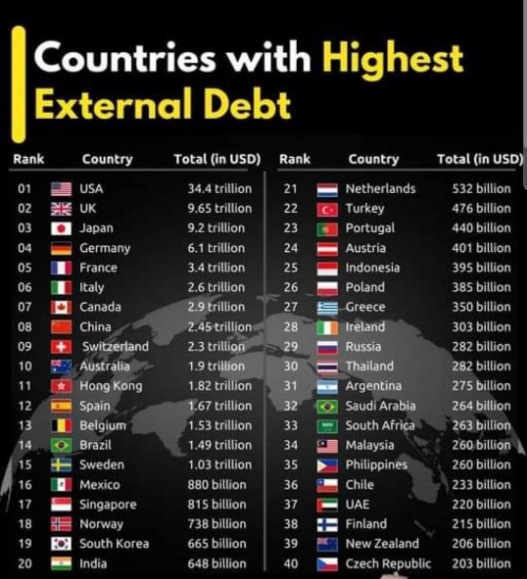Washington and the West have begun a new phase of financial warfare against Russia and China — a powerful but also potentially risky escalation that, if people aren’t careful, could eventually give Moscow and Beijing exactly the outcome they are believed to be looking for, writes ‘The Foreign Policy’. The West’s latest actions against Russia carry risks for the global system and could provoke China.
How so? Because the unprecedented actions taken at the G-7 summit in June to hand over to Ukraine billions of dollars in profits earned on frozen Russian assets — along with new actions taken against Chinese banks — could begin to undermine the legitimacy of the U.S.-dominated international financial system, some experts say. And that could make Russian President Vladimir Putin and especially Chinese President Xi Jinping, who is said to want to create an alternative renminbi-based financial system, very happy in the end.
At a time when many nations are unsure about whether to do business with Russia and are falling into the debt-enforced embrace of China, the G-7 action sends a message: What was once sacrosanct in international finance may be no longer. A number of sovereign wealth funds, central banks, corporations, and private investors — especially from the smaller countries of the global south that are most vulnerable to sanctions — may well want to hedge against full investment in dollar- and euro-based holdings.
“This decision crosses the Rubicon,” said Ryan Martínez Mitchell, a law professor at the Chinese University of Hong Kong, by “weakening the norm of sovereign immunity for foreign central banks.”
“Any shift away from a U.S. dollar-based global financial system is not a near-term prospect, but decisions like these do probably add to the constituency that would welcome that kind of future,” Mitchell said. Others agree. “There were many forces pushing for a search for alternatives to [the U.S.] dollar, and this move will give an additional push to those efforts,” said Harold James, a financial historian at Princeton University. “I believe we are at a tipping point in which two worries coincide: one about the likely fiscal path of the U.S. and an unsustainably large burden; the second about seizure of assets, with secondary sanctions possibly being applied to countries that are in a supply chain with China and then indirectly with Russia.”
The “tipping point,” James warns, could come in the form of many countries, even U.S. allies, beginning to move their assets away from the dollar and euro. According to Raghuram Rajan of the University of Chicago, a former governor of the Reserve Bank of India, nations are disturbed by the idea that Russia’s $300 billion in central bank reserves have been inaccessible for more than two years. “Some central banks have started diversifying reserves a little more as a result, including into gold,” Rajan said.
James added: “One sign that I find very telling is how Central European countries, the Czech Republic and Poland, both of which feel very close to the U.S. and who weren’t interested in gold reserves when they felt secure — indeed, the Czech Republic sold its gold reserves the day they entered NATO in March 1999 — are now buying large amounts of gold.”
Nor did the G-7 leaders stop there. They also indicated that new measures were being considered that might gradually cut Beijing out of the international financial system. While saying in a communiqué that they “recognize the importance of China in global trade” and affirming that they “are not trying to harm China or thwart its economic development,” the leaders obliquely threatened Chinese banks “and other entities in China” with measures to “restrict access to our financial systems.” That could ratchet up the war — and the risks to the system — dramatically.
China has already been quietly insulating itself from financial retaliation over its support of Russia in the past two years, said Hung Tran, a former deputy director at the International Monetary Fund, in a June 21 interview. “The major Chinese banks have been very cautious even in reducing their exposure and dealings with Russia. In place of that, smaller institutions not having any business with any U.S. entity have been set up to handle trade with Russia so that basically Russia-China trade is settled in renminbi and rubles.”
Actually seizing those bank assets was seen as a step too far, especially by the Europeans, who fought off an effort led by the U.S. Congress, and ultimately backed by the Biden administration, to pursue full seizure. That meant tampering with the international financial system itself — the complex postwar network of norms, codes, and laws that has underwritten the greatest surge of prosperity in recorded history and enriched the West. That felt a little too much like playing with elemental fire because it meant threatening the idea of sovereign immunity that is central to the system and because it meant posing increased risks to the holding of dollar- and euro-denominated assets.
And while Xi’s dream of a renminbi-based system still “has a long way to go” — the yuan is a distant fifth in global reserve currency holdings — escalating Western moves “may ultimately weaken international law protections for everyone, not only their intended targets,” Mitchell wrote recently for the Quincy Institute. As a result, “intensified weaponization of Western currencies could indeed boost China’s yuan efforts, and, more significantly, provide a major stimulus to plans for a BRICS basket reserve currency.

read more in our Telegram-channel https://t.me/The_International_Affairs

 10:35 14.07.2024 •
10:35 14.07.2024 •























